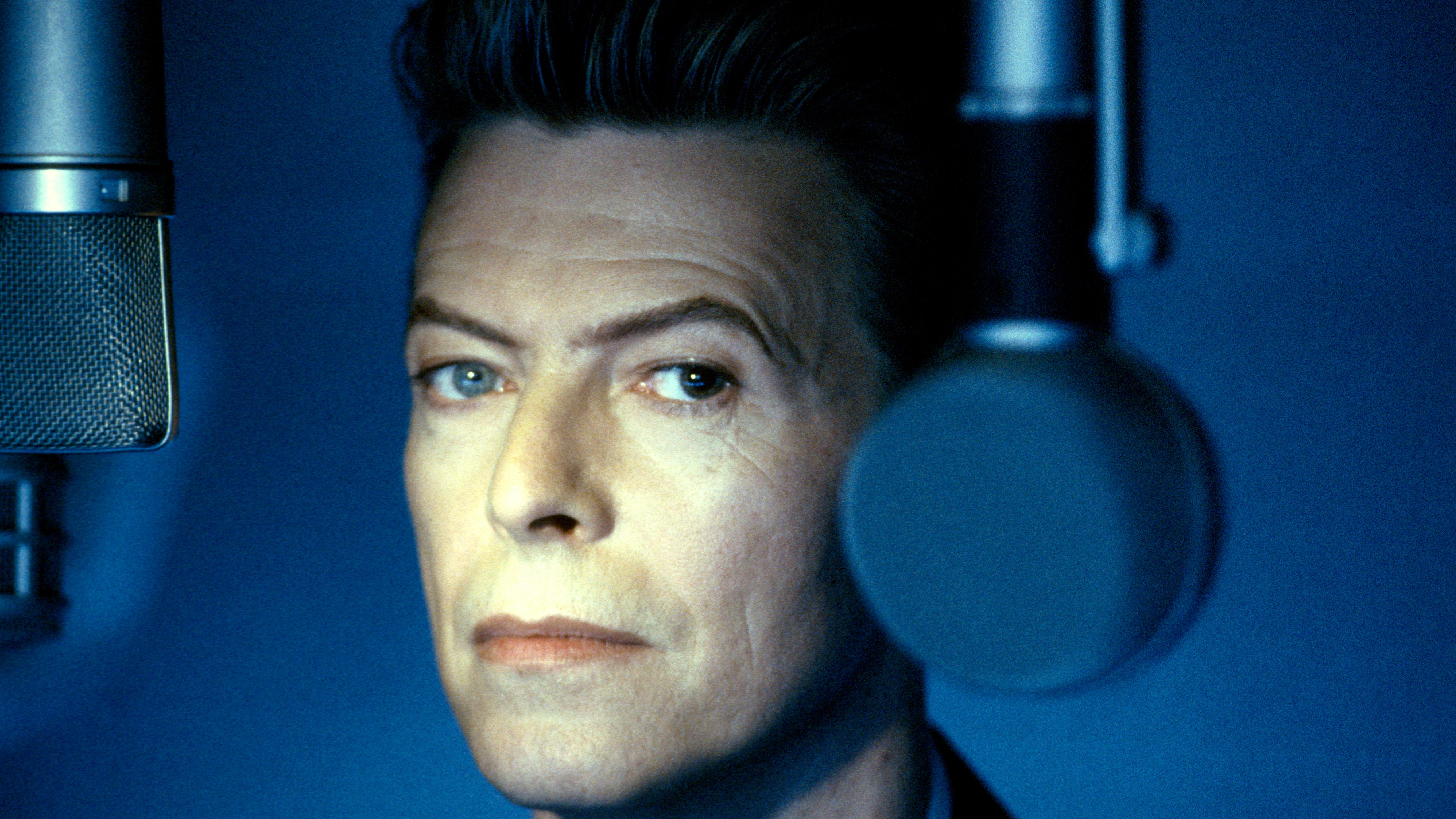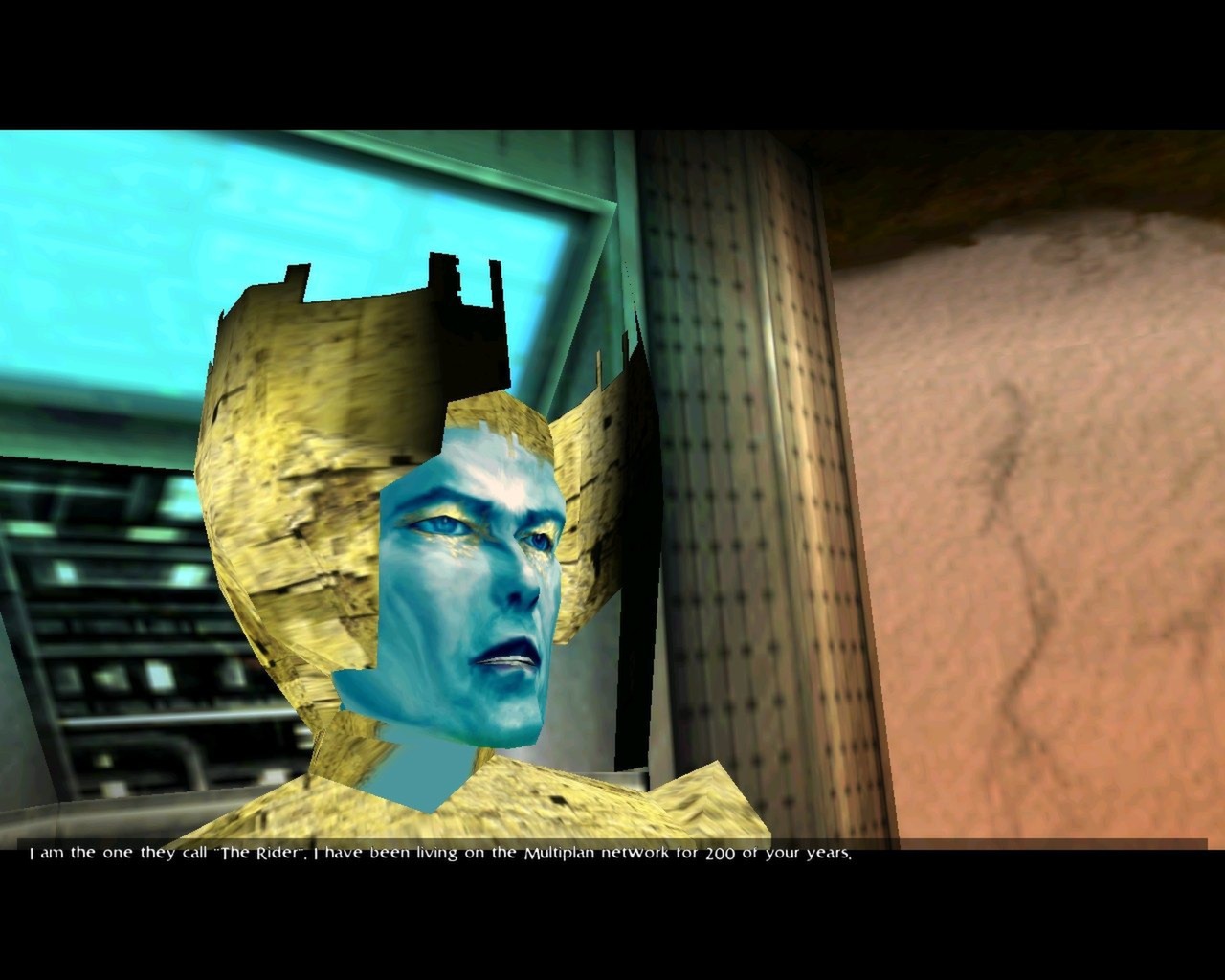David Bowie's time on Omikron, and his madcap scheme to buy up a load of old satellites and 'relaunch Ziggy Stardust from space'
"Something about it didn’t gel enough for people even to try it. I think David was a bit pissed off."

Music publication Mojo has a new retrospective on Omikron: The Nomad Soul, the 1999 game that marked David Cage's directorial debut but is most notable for the involvement of David Bowie. The legendary musician was initially approached in a bid to license some of his older songs but Bowie, ever-keen on where technology was going and sensing the opportunity to make his mark in a new medium, ended up both starring in the game as Boz and writing or co-writing twelve original songs for the soundtrack (some of which would later be reworked for his album Hours).
I know that all sounds incredibly cool, and elements of Omikron undoubtedly are, but let me slightly temper your expectations: It's a very average game, even by David Cage standards. That's not to say it wasn't also massively ambitious, had some great ideas, and of course involved Bowie (if you're interested, it can be had on GOG). Which was mainly because one of the key designers was a massive Bowie nut.
"[David] Cage’s list of bands went Björk, Radiohead, Future Sound Of London, Garbage," Omikron’s senior designer Phil Campbell told MOJO. "I threw Bowie on there because I’d been in the fan club since I was 11: And I knew he would complement the world we were creating.”
Campbell worked for Eidos at the time, which had signed up to Cage's vision and partnered with Quantic Dream to make the game. They initially wangled a meeting with the rock legend just to talk about "licensing his old music" but Bowie quickly got interested in the game's ideas.
"He loved David Cage’s vision for Omikron," says Campbell. "That you were sucked into this world, the themes of oppression and being awakened, and he loved [art director] Loïc Normand’s visuals. The next meeting he brought Iman and Joe [Duncan Jones]. Then he brought [guitarist and Bowie collaborator] Reeves Gabrels.”
Bowie was sold, and decided to not only write new songs for Omikron but hole-up with the developers for two weeks in a Paris apartment. Long known for using the "cut-up" collage technique when writing lyrics, Bowie had even upgraded to doing this on a PC. "I saw the computer program he used to do his William Burroughs lyric cut-ups on," says Campbell. "He said, 'I used to do it manually but now I have this.'"
Such close involvement meant Bowie's presence in the game increased, and Omikron would eventually feature a virtual band called The Dreamers that played three concerts in-game. He also became Boz, a living hologram involved in the resistance. "I can’t remember when it was decided that Boz should be Bowie," says Campbell. "It might just have been us pushing our luck. But he was super-super on-board. We put him through the indignity of having dots stuck all over his face for the motion capture. He’d never done that before."
The biggest gaming news, reviews and hardware deals
Keep up to date with the most important stories and the best deals, as picked by the PC Gamer team.

Bowie even wondered at one point, in-line with the game's themes, whether he could "leave his Bowie persona in Omikron, and come out as David Jones… it fitted the spirit of the game: Omikron was a giant trap, you could lose your soul in there forever."
Omikron sold "OK" says Campbell, but the 600,000 or so units it shifted were almost entirely in Europe. "It got no press in America. David did some chat shows: Letterman would show the box. But something about it didn’t gel enough for people even to try it. I think David was a bit pissed off."
Despite that, Omikron had a definite influence on Bowie that's felt on the 1999 album Hours, which features a rework of the game's theme as New Angels Of Promise. And it certainly encouraged his thirst for exploring new ways to use technology.
"We talked about buying up a bunch of old satellites that were circling the Earth," says Campbell of a post-Omikron hangout. "He was going to relaunch Ziggy Stardust from space. The idea was that Ziggy would beam us transmissions: 'Are you receiving me…?'"
If that puts you in mind of Starman, and a certain Top of the Pops performance, you're not alone. Bowie would drift away from videogames after Omikron, though they didn't forget him: Hideo Kojima's entire oeuvre is shot-through with Bowie worship, reaching its peak with 2015's Metal Gear Solid V: The Phantom Pain, featuring The Man Who Sold the World as its key motif alongside the player building up the Diamond Dogs mercenary force.
One more historical nugget from the time of Omikron is this 1999 interview Bowie did around the game's release. "The idea of developing a soundtrack idea for a game is really quite unusual," begins Bowie. "The idea of writing songs specifically for a game was really a compelling factor and the one thing we wanted to do. They didn't give us a preconceived idea of what we should do, we were left to our own devices."
Bowie's asked about his own experience with computers. "Not many people know this," says Bowie, beginning his answer with a Michael Caine impersonation. "But actually I was the first artist to take computers out on the road in the very early 1980s, the Serious Moonlight tour, 1983, and we were going online then and delivering all the facts and figures back to home base. So my experience with computers does go back a long time. I've been working on the Internet now for about two years and actually six months in operation, and I've been producing art on the computer since 1994, that's when I did my first series of things. So I can mouse about."
And his experience with games? "My son is the games merchant in our household," says Bowie. "I've played games, of course I played Tomb Raider and like every other hot-blooded male fell in love with Lara… momentarily, then I realised that it's not real, it's just not real, and this is definitely the end of the millennium."
Bowie goes on to discuss he and his collaborators' approach to the soundtrack, saying "what we're trying more to do than anything else is provide an emotional heart to the game. The one thing I did find in the games I viewed before we started work was that a lot of the games have a cold emotional drive.
"I think the one thing that we noticed immediately is that most of the material used in games is taken off albums," says Bowie. "Very rarely is music actually produced with the game. They've taken an album track here and an album track there, and it sort of works some of the time."
Finally he's asked about his own involvement in becoming a character in a videogame.
"I said my priority was that I looked about 24 years old and that was my input really," laughs Bowie. "And then for weeks and weeks they kept sending me sketches and it was 'no, no, no… YES, that one!'"

Rich is a games journalist with 15 years' experience, beginning his career on Edge magazine before working for a wide range of outlets, including Ars Technica, Eurogamer, GamesRadar+, Gamespot, the Guardian, IGN, the New Statesman, Polygon, and Vice. He was the editor of Kotaku UK, the UK arm of Kotaku, for three years before joining PC Gamer. He is the author of a Brief History of Video Games, a full history of the medium, which the Midwest Book Review described as "[a] must-read for serious minded game historians and curious video game connoisseurs alike."


